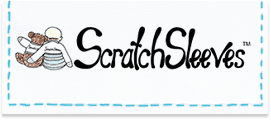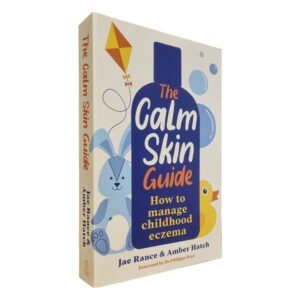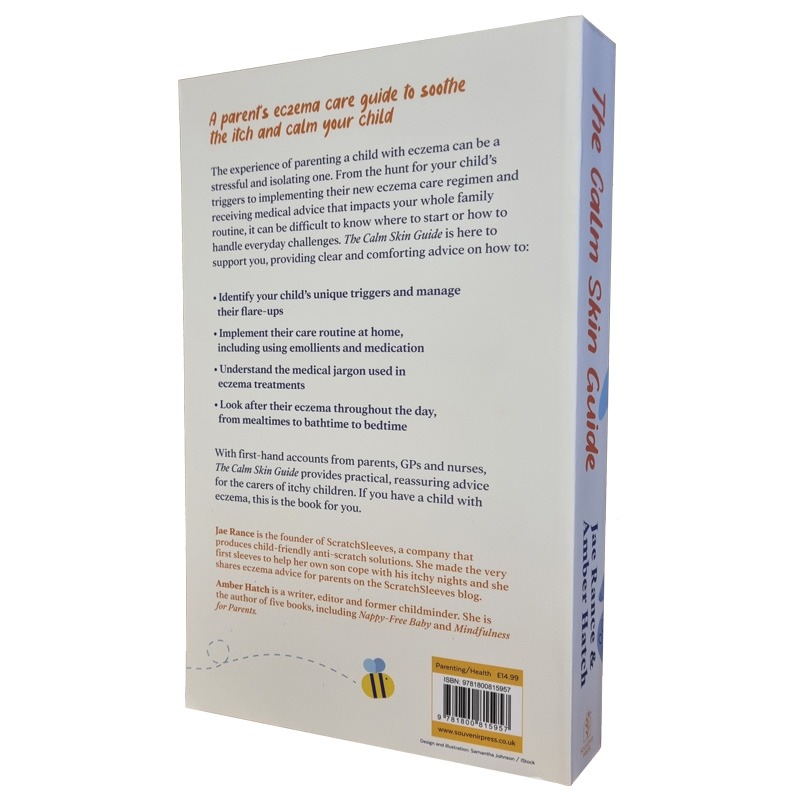Avoiding baby eczema triggers #1: Laundry

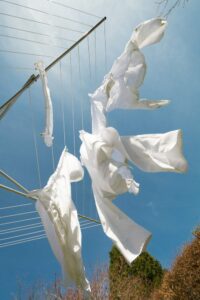

One of the most effective ways of controlling baby eczema is to identify what triggers your baby’s eczema flare-ups and avoid them as far as possible. Washing detergents and fabric softeners are a very common cause of baby eczema. Signs that laundry detergents are a trigger for your baby’s eczema can include eczema patches appearing over their whole body but often with a clear nappy area, intense itching and eczema that is aggravated by water. But how on earth can you keep clothing clean without these washing powders? We share our top tips for eczema friendly laundry.
Why do laundry detergents aggravate baby eczema?
Did you know that the build-up of detergent residues is the reason why clothes are so stiff and scratchy when they come out of the laundry? According to a study by Clemson University School of Textiles and Polymer Science, over time detergent residue can add as much as two per cent to the weight of a garment. That’s a lot of detergent in direct contact with your baby’s skin. Ironically, the most common way to soften this stiffness is to add even more potentially irritating chemicals, in the shape of fabric softeners.
The cleaning elements of laundry detergents are de-greasers, so it is no surprise that detergent residues in clothing can irritate eczema-prone skin which is already short of natural oils. But that’s not all, laundry detergents also contain fragrances and optical brighteners which as designed to stay in the fabrics even after rinsing. These chemicals can irritate eczema prone skin. Fabric softeners are also designed to cling to the fibres in fabrics during the wash and again contain fragrances and other irritating chemicals. Both The American Academy of Dermatology Association and the NHS list laundry detergents and fabric softeners as common eczema triggers in babies.
Stain removers are more concentrated versions of regular detergents. They are so strong that most have to print warnings about the risk of skin irritation on the packaging. Residues of these products build up in the fibres in exactly the same way as regular detergents. If your little one has baby eczema it’s definitely worth avoiding them whenever possible. However, kids’ clothes can get very mucky and staining is almost inevitable. Read our article on eczema friendly stain removal for top tips on keeping your kids’ clothes looking good.
Are biological detergents bad for eczema?
It’s a common misconception biological washing detergents, which contain enzymes, can aggravate baby eczema. However this is not supported by studies carried out by St Thomas’ Hospital, Nottingham University and St Mary’s Hospital. These studies concluded that “…investigations of numerous individuals with skin complaints attributed to laundry products demonstrate convincingly that enzymes were not responsible. Indeed, enzyme-containing laundry products have an extensive history of safe use. Thus, the supposed adverse effects of enzymes on skin seem to be a consequence of a mythology.”
…investigations of numerous individuals with skin complaints attributed to laundry products demonstrate convincingly that enzymes were not responsible. Indeed, enzyme-containing laundry products have an extensive history of safe use. Thus, the supposed adverse effects of enzymes on skin seem to be a consequence of a mythology.
D A Basketter et al in Enzymes, detergents and skin: facts and fantasies
In fact, biological laundry detergents are especially helpful in clearing emollient build-ups common in the clothing of eczema sufferers. However, they are not suitable for some specialist eczema clothing, including the ScratchSleeves range, as the enzymes will degrade the silk very quickly.
For more information on which detergent ingredients to watch out for, see our post on eczema friendly laundry detergents.
Top tips for baby eczema friendly laundry
As with everything related to baby eczema, finding a practical solution that works for your family can take some detective work and experimentation. Here are some ideas to get you started.
Top tip: It can take a number of washes to get rid of the detergent build-up. This means that it can take a few weeks for improvements to appear in your child’s skin. You can get around this by starting a new washing regime at the same time as replacing your baby’s clothes with new ones as they move up a size.
Add a rinse/spin cycle
The National Eczema Association suggests that one of the simplest ways to reduce the build-up of detergents in clothing is to use an extra rinse cycle once the washing machine has finished its regular cycle. Adding another spin cycle reduces the amount of rinse water, and the residues it contains, left in the clothes.Reduce the amount of detergent
One easy way to reduce the build-up of detergents is to half the amount of washing powder that you use in each wash. We find that the regular clothes are just as clean. The reduced detergent build-up also removes the need for a fabric softener. If you have a heavily soiled wash load, adding a tablespoon or two of washing soda (sodium carbonate) or baking soda (sodium bicarbonate) will remove any smells and help to shift stubborn stains.Find an eczema-friendly laundry brand
There are a number of eczema-friendly brands available. The most established is Surcare. Ecover Zero is another established brand with good eco-credentials. The SkinSalve laundry powder is also popular in our house. This is mainly because it’s based on coconut oil and leaves the clothes really soft. You can read more about detergents here.
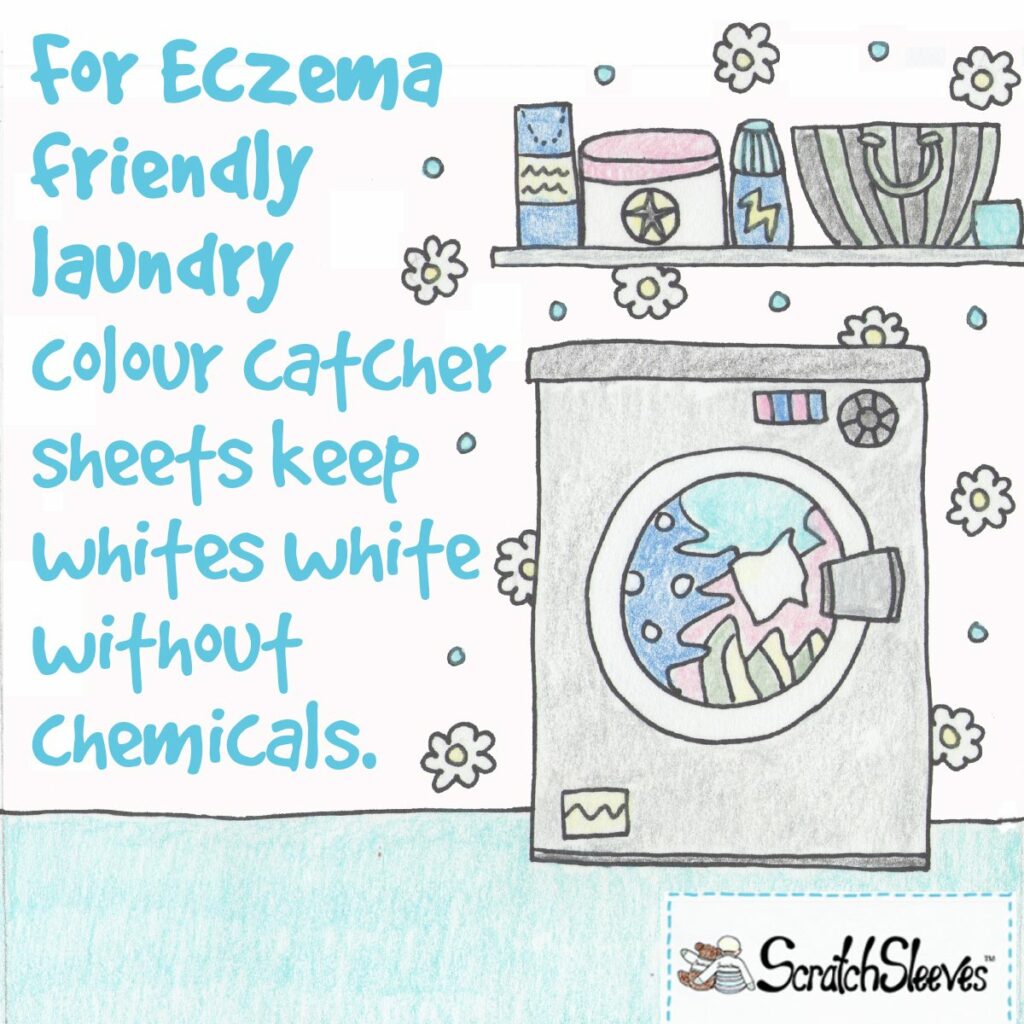
Avoid detergent altogether
Advice from the NHS suggests that ‘soaps and detergents shouldn’t be used if your child has eczema.’ So, what should you use instead? Old-fashioned soap flakes clean clothes well without the irritation of modern detergents but will still leave a residue in the fabrics, especially in hard water areas, so they will take a bit more rinsing and possibly the addition of some washing soda. Soap nuts and eco balls leave very little residue but often leave the clothes not quite so clean. Whites can end up looking quite dull over time, but many people think that this is a small price to pay for a solution to baby eczema.Soak stained clothes
We all know that stains come out best if you can wash them straight away and that baby clothes can get really mucky. In our house it’s rarely practical, so we have a bucket of water mixed with a good slug of baking soda which all the foody bibs, grubby tops and stained vests are thrown into as soon as they come off the kids. This keeps the worst of the stains at bay until we can get the clothes into the washing machine.Colour catcher sheets
Over time, whites turn dull and bright colours fade in the wash. It is the dye from the bright colours that make the whites look dull. Even if you sort your washing religiously, some of the loose dye will lurk in your washing machine to be absorbed by the next whites wash. If you use them in every wash, colour catcher sheets mop up the loose dye as it washes out so it isn’t there to dull your next whitewash. I’m still amazed by the amount of colour they mop up even from clothes that have been washed hundreds of times.Use the washing line
Leaving the clothes outside in the sunshine (when there is some) is an amazingly easy and effective way to rid of any lingering stains, especially food and nappy related stains. We’ve even managed to get rid of tomato-based stains this way. If your baby’s eczema is aggravated by pollen, give any clothing that you have hung on the line to fade the stains another wash and tumble dry before using it.
One last thought:
Very small babies come into contact with other people’s clothes a lot as they are cuddled and carried. It may be necessary (and simpler) to wash the whole family’s clothes in the same way. Use something like a muslin square to protect your baby’s skin from visitor’s clothing. It’s also worth considering what your baby is wearing. Read more in our post on eczema friendly fabrics.
Did you know the impact that eczema creams can have on your washing machine? Read more in Baby Eczema Tips: Washing Machines and Eczema Laundry.
More information on other eczema triggers
Here at ScratchSleeves, we don’t just share our experiences of bringing up an eczema child and favourite allergy-friendly recipes, we also manufacture and sell our unique stay-on scratch mitts and PJs for itchy babies, toddlers and children. We now stock sizes from 0-adult years in a range of colours. Visit our webshop for more information.
The Calm Skin Guide
Love our blog? It's also available in book format with:
- First hand accounts from parents & medical professionals
- Easy navigation
- Comprehensive index
- Additional material
Signed copies available at no extra cost
Written by:
Interesting article? Don't keep it to yourself...
Read next...
You may also find helpful...
Quick buy


Multi Buy Discount

Spend between £30 - £60 and save 5%
Spend between £60 - £120 and save 10%
Spend over £120 and save 15%
Discount automatically applied at checkout
No Quibbles Guarantee
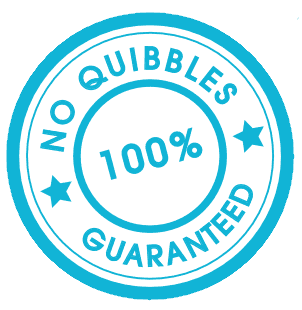
ScratchSleeves abide by a no quibbles guarantee.
Free UK Postage

Free packing and postage on all UK orders. For overseas orders to Europe postage is from £3.50, to USA is £6.50 and to the rest of the world, from £3.75.

